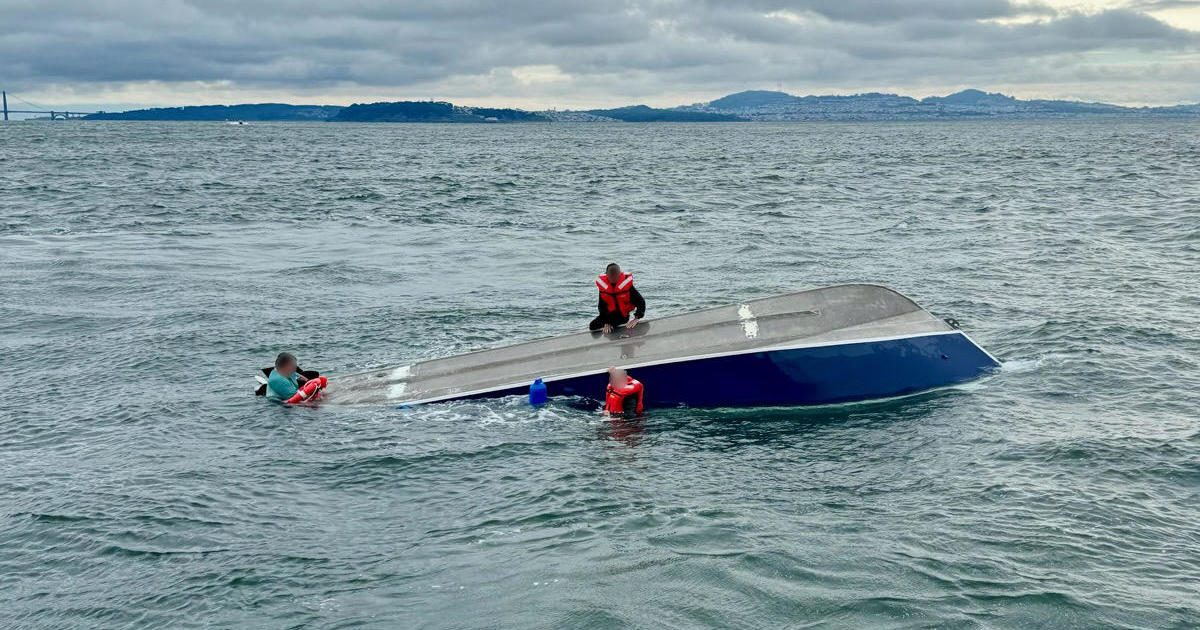Rescued Peninsula Sea Lion Put Down After Suffering Stroke
SAUSALITO (CBS SF) - A sea lion found stuck in the mud in an East Palo Alto creek last week was euthanized Wednesday morning after suffering a stroke at the Marin County rescue center where he was being treated.
Verbena, who was named after Verbena Drive near the creek where he was found, was rescued and taken to the Marine Mammal Center on Aug. 25. Veterinarians determined he was suffering from leptospirosis, a bacterial infection that causes kidney damage in sea lions, center spokesman Jim Oswald said.
The bacteria, which results in dehydration as the kidneys fail, is treatable if caught in time, he said. But in Verbena's case, it was too late. The bacteria had spread and caused blood clots in Verbena's brain, triggering his stroke early Wednesday morning.
"The humane thing to do was to euthanize him," Oswald said.
Verbena, who was initially thought to be a female until he was examined, was taken to the Marine Mammal Center by volunteers who captured him from the creek and transported him in a carrier.
Lifting the carrier over the 15- to 20-foot-tall creek walls proved problematic, he said. A tow truck driver who stumbled on the scene after seeing the large crowd helped by lowering a boom to lift the carrier, Oswald said.
When Verbena arrived at the rescue center, he was underweight, lethargic and wasn't breathing deeply, he said. Estimated to be 2 to 3 years old, Verbena weighed 155 pounds—slightly less than the average male juvenile, Oswald said. Adult males can weigh more than 800 pounds.
The Marine Mammal Center has taken in about 180 sea lions this year. About half were infected with leptospirosis, but many of those were treated with antibiotics and released into the wild again, he said.
Leptospirosis is not transferable from one sea lion to another, Oswald said. Rather, the animals become infected through standing water contaminated with the bacteria.
Although it may be difficult to determine whether a sea lion is infected until a medical examination, one telltale sign is that they will suck on sand or water—which is not normal sea lion behavior.
"Leptospirosis tricks their brains into thinking they're thirsty," Oswald said. "The brain says they need hydration because of the renal failure."
Verbena's death comes a week after the euthanization of King Neptune, a sea lion who suffered gunshot wounds and was put down after tests determined that his condition had deteriorated.
Anyone who spots a sea lion and notices something unusual, no matter how seemingly insignificant, is encouraged to call the Marine Mammal Center hotline at (415) 289-7325, which is staffed 24 hours a day.
(Copyright 2011 by CBS San Francisco. All Rights Reserved. This material may not be published, broadcast, rewritten, or redistributed.)



